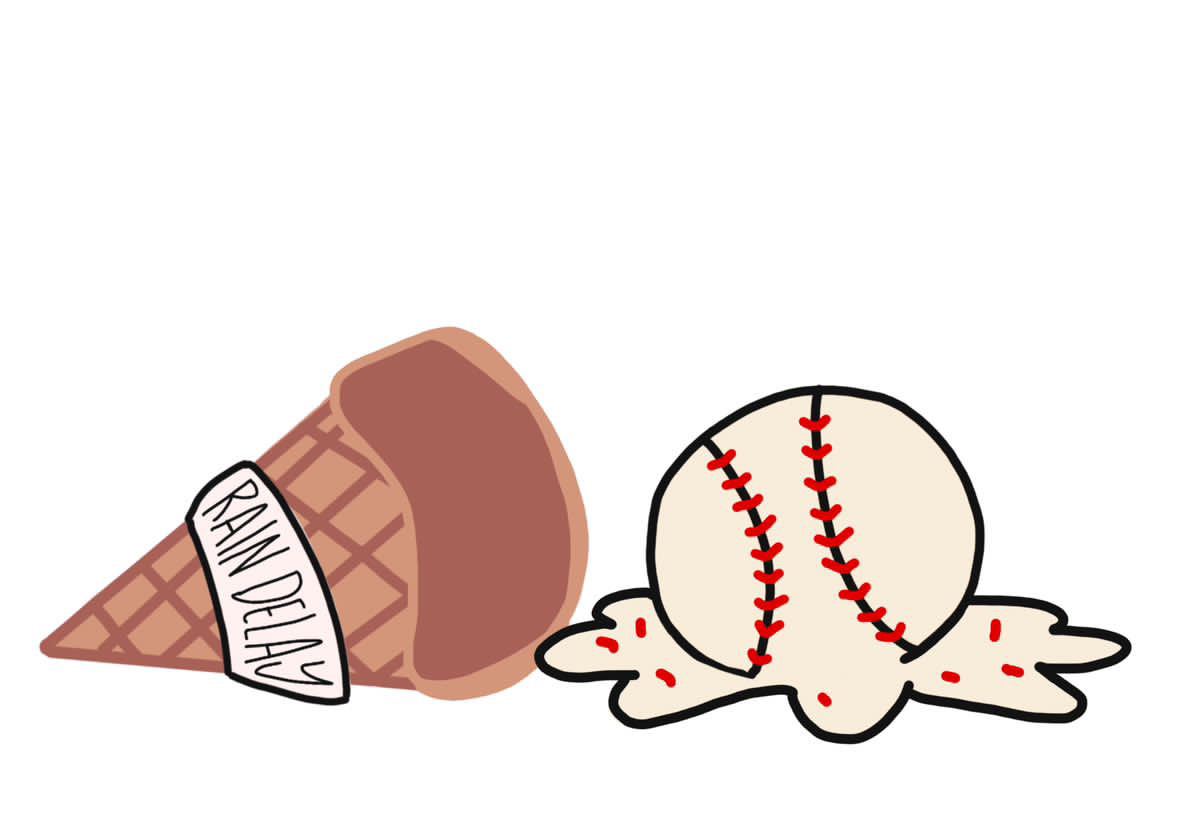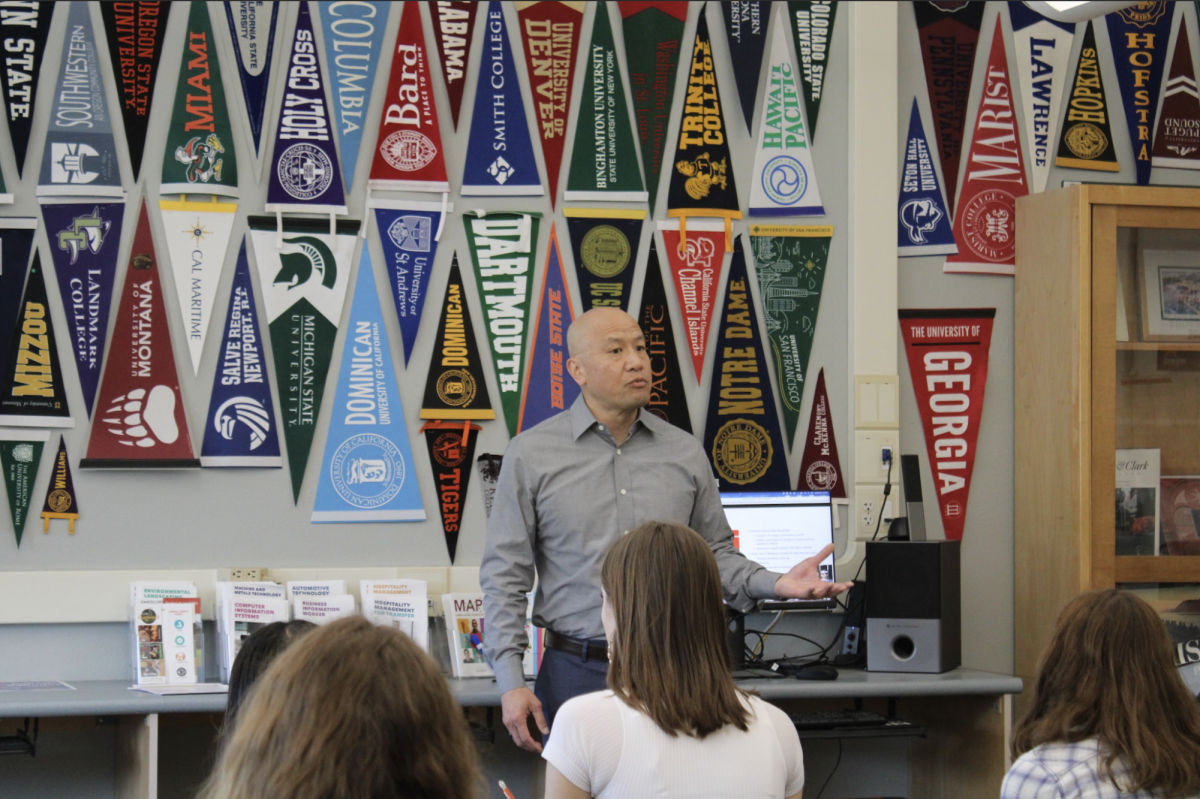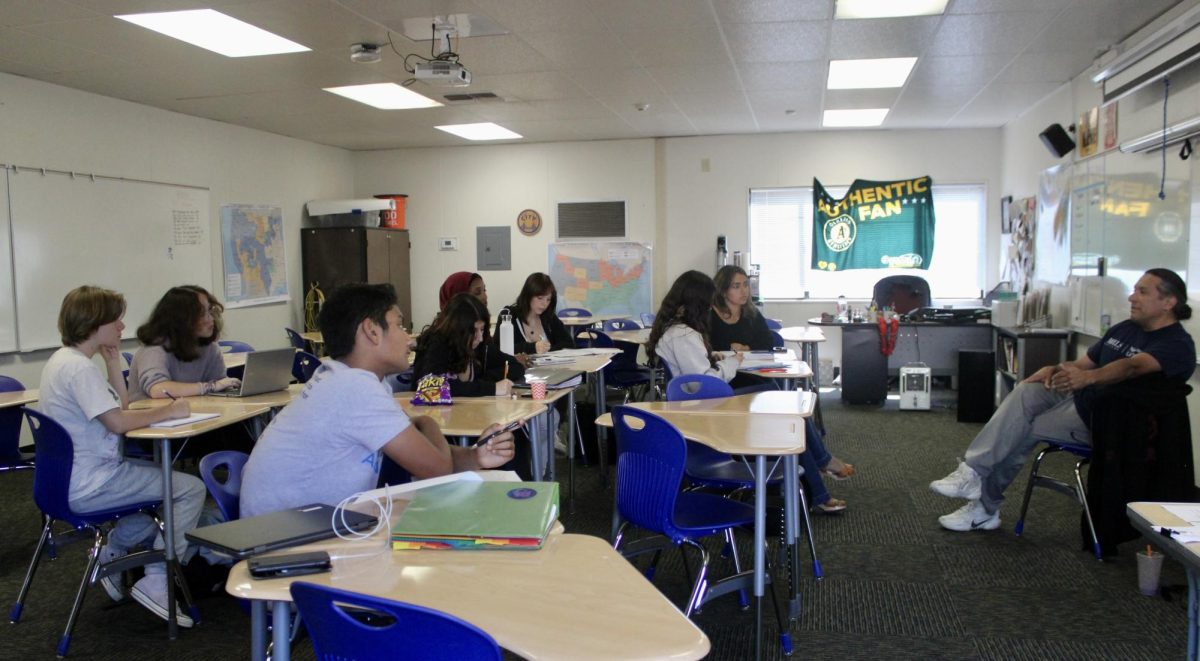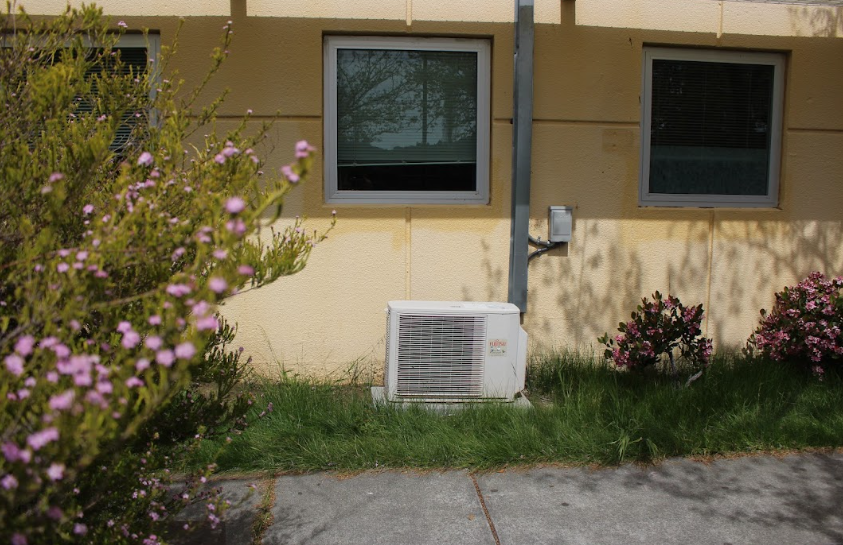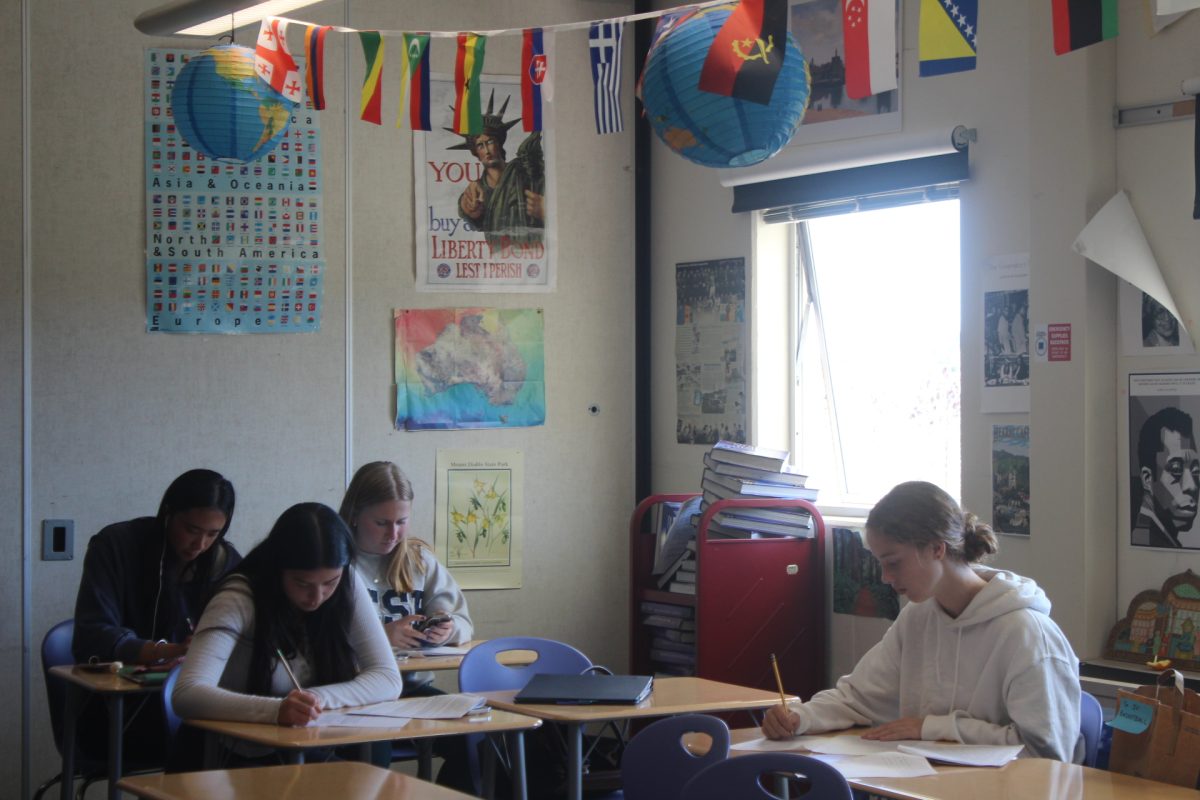A new applied science course in which students will grow plants and build soil was recently approved by the school board to be offered as a class in the fall semester.
Sustainable Agriculture, which was approved by the school board on Feb. 6 and recently met the necessary number of student sign ups, focuses on the sustainable production of food and is based largely on hands-on work at the recently established Redwood farm, located next to the garden between the tennis courts and the swimming pool.

“Those who take the class will have a really strong sense of where one’s food comes from and what it takes to create it—both what it takes for you as an individual and what impacts it has on society and on the environment, and how those factors can be minimized,” said the course’s creator, science teacher Joe Stewart.
Mondays and Tuesdays will serve as curriculum-based planning days, where students will organize and plan seasonal projects like building a compost pile or planting and grafting a tree. On block days, Stewart said he plans on spending the bulk of the 90-minute period out on the farm doing hands-on work that relates to the seasonal projects.
Stewart said the class was inspired by the already-existing Ecology class, which he has taught for 17 years.
The initial concept of the class was approved on Sept. 18, which reserved the land and marked the establishment of the farm. Stewart said the
Sustainable Agriculture class will spend at least half of its time outside on the farm.
According to Stewart, the Ecology classes worked experimentally in the farm this year building soil in addition to working in the class garden.
“The starting point for any good agricultural system is the soil, so this year, in preparation for Sustainable Agriculture, we’ve done a lot of composting and soil building,” Stewart said. Stewart added that his Ecology class also planted cover crops like beans and peas, which add nitrogen to the soil, and food crops like raspberries and strawberries.
Working on the farm was a popular activity for Stewart’s Ecology students this year—so much so that Stewart began hosted volunteer farm work days on Saturday mornings for 50 to 70 students,
“I’m not really expecting a bunch of Marin kids to become farmers, but it’s going to be a real active way to learn about food and the choices we make at least three times a day, and how those choices affect us, and how you can potentially do something if you have a little bit of dirt somewhere,” Stewart said.
Stewart said that in addition the existing crops on the farm, the Sustainable Agriculture class will grow carrots, dwarf apple trees, and kale, and hopes to donate or sell some of the leftover crops. He said he’s open to growing other crops, and cares a lot about student input.”
I’m going to leave a lot of things up to the students,” Stewart said. “This is a project that we do together. I’ll guide it and I have a fair bit of experience doing this stuff having run the garden for as long as I have, but I’m not a farmer, I’m a teacher, so I have resources but I want to experiment with them.”
Stewart said he recently applied for the class to receive UC Science Elective credit. The class is open to students who have completed Integrated Science 3.
“It’s definitely a great follow up to AP Environmental Science and Ecology, but it’s certainly open to students who are excited to get out and do some applied science,” Stewart said.


